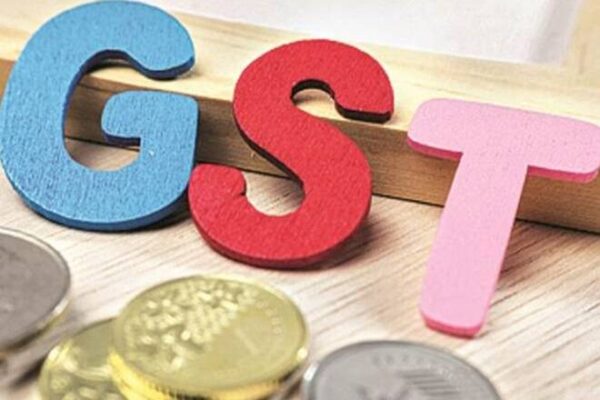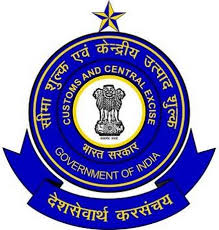- We will discuss and take a call how to borrow and meet the (GST) revenue shortfall, said finance minister in the Lok Sabha
- Sitharaman ruled out compensating states from the Consolidated Fund of India holding that there is no such provision in law
Finance minister Nirmala Sitharaman on Friday signaled that she is open to discuss more options to compensate states on account of shortfall in the Goods and Services Tax (GST) compensation cess if states do not find the two options offered by the government accetable.
“We will discuss and take a call how to borrow and meet the (GST) revenue shortfall. We have given two options. If they are not acceptable to them we will discuss and find a solution. But it does not mean we don’t want to compensate,” Sitharaman said while replying to the discussion on first batch of supplementary demands for grants for FY21.
However, Sitharaman ruled out compensating states from the Consolidated Fund of India holding that there is no such provision in law. “We are in discussions with states. We are not repudiating any state. We are taking along all states and GST Council will take a final view. Centre is not reneging on its promise to compensate,” she added.
Finance minister Nirmala Sitharaman on Monday had sought Parliament’s approval for additional spending of ₹2.36 trillion in FY21 to meet the mounting expenses due to the coronavirus pandemic. The first batch of supplementary demands for grants for the current financial year involves additional budgetary burden of ₹1.67 trillion while around ₹69,000 crore will be met through savings by various departments.
“The supplementary demands for grants should not be seen as a technical document. It is a charter for self-reliance,” BJP leader Jayant Sinha said during the debate on the supplementary demands.
Tacitly explaining the guarded approach of the government against providing a large fiscal stimulus, Sitharaman said the government is not contemplating for increase in taxation rates to meet increased expenditure like some developed countries which have given stimulus amounting to 15% of GDP. “The pandemic is still prevalent. We don’t know when a vaccine will come. We have a national security situation at Ladakh. Yet we have not reduced transfers to states,” she added.
Sitharaman said total transfer to states have increased 19% this year. “We have transferred 107% of gross tax revenue to states while centre’s expenditure is met through borrowing. That is the truth. We are also frontloading transfers to states,” she added.
Holding that the fundamentals of the economy still remain strong despite the pandemic ravaging the economy, Sitharaman said the country has a record forex resevers, FDI inflows have been rising while potential retail investors have opened record number of demat accounts during the lockdown.
Indian economy contracted at a record 23.9% in June quarter after the government imposed nationwide lockdown on 25 March forcing businesses to shot operations while demand plummeted as consumers stayed home. Most forecasters now expect the economy to contract in double digits in FY21 as the coronavirus pandemic continues to spread rapidly in Asia’s third largest economy hitting consumer sentiment.
Speaking at the 53rd virtual annual meeting of the Asian Development Bank on Friday, Sitharaman said like many countries in the Asia and Pacific region, India started the year 2020 with a confidence associated with a strong economic growth trajectory. “As the Covid-19 pandemic unfolded bringing in huge challenges to the health system, and as the preventive measures to contain the spread of the virus introduced obstacles to normal economic activity, the growth programme in countries across the globe including India have had to take a pause. A health crisis cascaded into an economic crisis from which no country remained unaffected,” she added.
As our country has gradually started unlocking, the evolving economic situation is being continuously monitored and evaluated. All possible fiscal, monetary and administrative steps are being taken by the Government to cope and emerge out of the situation, and to enable the economy back to operating at its fullest potential.
In a statement laid down in the Parliament, the finance ministry on Friday said it is not able to submit Medium Term Expenditure Framework with rolling targets of indicative expenditure for FY22 and FY23 as mandated under the FRBM Act because it is not possible to obtain reliable projections of GDP growth at this time due to the continuing impact of COVID-19 pandemic on the Indian economy. “The expenditure of Union government in the medium term is determined partly by the GDP growth as governmental expenditure will have to substitute any slack in aggregate demand from the non-government sector. Determining expenditure based on non-robust GDP estimate has the danger of keeping the economy below its true growth potential. An emerging economy like India cannot afford to be below its growth potential for long,” it added.
Source: Livemint.com
***
[rainbow]Don’t miss the next GST Update / Article / Judicial pronouncement[/rainbow]
Subscribe to our newsletter from FREE to stay updated on GST Law
Resolve your GST queries from national level experts on GST free of cost.
TW Editorial Team comprises of team of experienced Chartered Accountants and Advocates devoted to spread the knowledge of GST amongst the various stakeholders.




